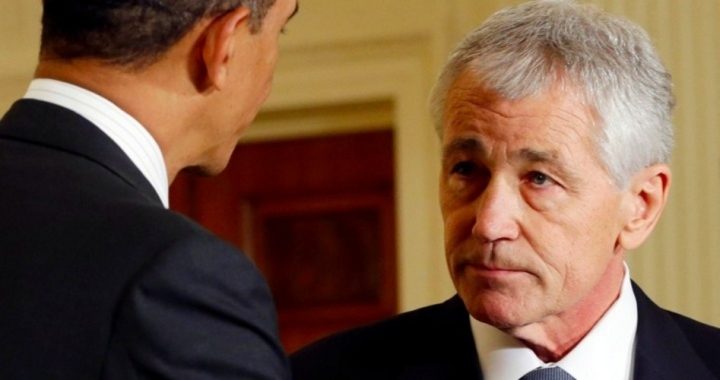
Charles Timothy (Chuck) Hagel started life in North Platte, Nebraska, in 1946. He served in the U.S. Army during the Vietnam War alongside his brother. Both were wounded when a Claymore mine exploded near them and both received decorations, one given to Chuck for saving his brother’s life.
From 1971 to 1977, he served on the staff of Republican U.S. Representative John McCollister. McCollister’s earned anywhere from 20 to 60 percent in the “Conservative Index,” a congressional scorecard now published by The New American under the name “Freedom Index.” For the next three years, he was a lobbyist in Washington. He supported Ronald Reagan’s bid for president and was awarded with the job of Deputy Administrator of the Veterans Administration. He left that post in 1982 to join with others in forming a cellphone company that was very successful. Sold to AT&T in 1998 for $1.5 billion, Hagel’s share of that transaction made him a millionaire.
In 1992, he returned to Nebraska, where he won election to the U.S. Senate in 1996 and was reelected in 2002. During his 12 years in the Senate, his percent scores in the “Conservative Index”/”Freedom Index” were generally in the 40s, 50s, and 60s.
In 2000, the Annual Report of the world-government-promoting Council on Foreign Relations listed him for the first time as a member. His CFR membership has continued ever since.
In its July/August 2004 issue, the CFR’s Foreign Affairs published Hagel’s essay entitled “A Republican Foreign Policy.” It contains:
• A call for expansion of “free trade” agreements and the desire to have NAFTA evolve into a“comprehensive program for the entire western hemisphere”;
• Promotion of extending the NATFA concept via CAFTA (Central America Free Trade Agreement) and FTAA (Free Trade Area of the Americas);
• A slur at the notion of isolationism (which term should be known as “non-interventionism”);
• Promotion of alliances and international institutions in order to extend U.S. influence;
• A call for the U.S. to strengthen global institutions “beginning with the United Nations”;
• Recommitment to the transatlantic partnership;
• Keeping NATO as the “central alliance in U.S. global strategy.”
At the end of this 2004 article in Foreign Affairs, an editor’s note states: “This is the third in a series of commissioned essays on foreign policy concerns for the next president.” I can’t be sure, but I think this means that CFR leaders asked Hagel to put his name to the article.
After initially support the 2003 invasion of Iraq, Hagel became a determined foe of the U.S.-led effort. He was harshly critical of President Bush, and he parted company with Senator McCain and other Republicans over the administration’s Iraq policy. But he did vote for the completely unconstitutional Patriot Act. In 2008, he accompanied Barack Obama on a trip to Afghanistan and Iraq. This excursion, considered to be an endorsement of Obama for president, gave Obama some claims to have some foreign policy experience and, even more, some bipartisan support in his run for the White House.
Hagel is now facing mild condemnation for previously issued negative comments about the “Jewish lobby” and about homosexual rights. These two issues have received far more attention than Hagel’s obviously solid connections to the Establishment’s Insiders.
Photo of Chuck Hagel with Obama: AP Images



